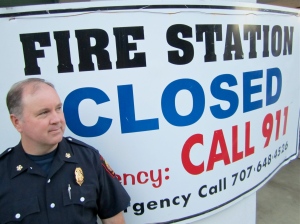by KELLEY WEISS
California Watch and KQED’s California Report
 For many mothers in California, child support payments can be hard to collect. But for women with outstanding claims against Native American tribal members, it can be almost impossible. That’s because tribes are sovereign nations and do not have to comply with state child support orders.
For many mothers in California, child support payments can be hard to collect. But for women with outstanding claims against Native American tribal members, it can be almost impossible. That’s because tribes are sovereign nations and do not have to comply with state child support orders.
READ THE FULL PRINT STORY – LISTEN TO THE FULL RADIO STORY
Media Partners: National Public Radio, San Francisco Chronicle, San Diego Union-Tribune and Riverside Press-Enterprise.
This story was produced by California Watch, a project of the Center for Investigative Reporting, and KQED Public Radio.
Filed under: Stories | Leave a Comment
Tags: California, child support, Kelley Weiss, tribal child support, tribal governments
by KELLEY WEISS
California Watch and KQED’s California Report
Since 1975, the California Department of Child Support Services has accumulated $19.2 billion in unpaid child support. That’s twice as much as the state with the next-highest child support debt, Texas. But the reason for the huge amount isn’t just dead-beat dads.
This story was produced through a partnership with California Watch, a project of the Center for Investigative Reporting, and KQED Public Radio.
Filed under: Stories | Leave a Comment
Tags: California child support, child support, child support debt, interest rate, Kelley Weiss
by KELLEY WEISS
A judge is set to rule today on a Northern California city’s plan to get out of bankruptcy. Having most of your debt forgiven might seem like a cheap way to go…but the bankruptcy has created some unintended consequences for the City of Vallejo. Now it’s working to get back on track.
Filed under: Stories | Leave a Comment
Tags: bankruptcy, Kelley Weiss, municipal debt, Vallejo
by KELLEY WEISS
KQED’s Health Dialogues
 It’s estimated that more than three million Americans struggle with Binge Eating Disorder. And even though this is the most prevalent eating disorder, it’s hard for people to get treatment. Binge Eating Disorder doesn’t have a formal diagnosis like anorexia and bulimia so insurance companies often won’t cover treatment. But this will likely change in the next few years.
It’s estimated that more than three million Americans struggle with Binge Eating Disorder. And even though this is the most prevalent eating disorder, it’s hard for people to get treatment. Binge Eating Disorder doesn’t have a formal diagnosis like anorexia and bulimia so insurance companies often won’t cover treatment. But this will likely change in the next few years.
*photo of Jamie Lieber – credit: Shuka Kalantari/KQED.
Filed under: Stories | Leave a Comment
Tags: binge eating, DSM-IV, eating disorders, Kelley Weiss, mental health disorders
by KELLEY WEISS
KQED’s California Report
 Vallejo could be out of bankruptcy by summer, if a judge gives the go-ahead to a plan that could deliver as little as five cents on the dollar to a host of creditors. Chapter 9 might sound like an easy way out to many cash-strapped municipalities. But there’s been nothing easy about bankruptcy for Vallejo.
Vallejo could be out of bankruptcy by summer, if a judge gives the go-ahead to a plan that could deliver as little as five cents on the dollar to a host of creditors. Chapter 9 might sound like an easy way out to many cash-strapped municipalities. But there’s been nothing easy about bankruptcy for Vallejo.
Filed under: Stories | Leave a Comment
Tags: bankruptcy, Kelley Weiss, municipal debt, Vallejo
Signing up for Medicare
by KELLEY WEISS
KQED’s Health Dialogues
 Health Dialogues follows Jim Thomson, of Grass Valley, Calif., as he navigates the Medicare enrollment process. A self-employed craftsman, Thomson says Medicare will save him money…as long as he can find the right plan.
Health Dialogues follows Jim Thomson, of Grass Valley, Calif., as he navigates the Medicare enrollment process. A self-employed craftsman, Thomson says Medicare will save him money…as long as he can find the right plan.
LISTEN TO THE FULL STORY. And, view an audio slideshow about Thomson’s transition to Medicare.
Filed under: Stories | Leave a Comment
Tags: health care, Kelley Weiss, Medicare enrollment, seniors
by KELLEY WEISS
KQED’s California Report
 A big target of Governor Brown’s proposed budget cuts is Medi-Cal. The spending plan would slash almost $2 billion from the state health care program for the poor and disabled. And this could leave patients sicker and clinics and hospitals picking up the tab for services no longer covered.
A big target of Governor Brown’s proposed budget cuts is Medi-Cal. The spending plan would slash almost $2 billion from the state health care program for the poor and disabled. And this could leave patients sicker and clinics and hospitals picking up the tab for services no longer covered.
Filed under: Stories | Leave a Comment
Tags: budget cuts, California Budget, health care, Kelley Weiss, Medi-Cal, Medicaid
Gentrifying açaí
by KELLEY WEISS
 With celebrity support and online promotion, a small purple berry from the Brazilian Amazon called açaí has exploded onto the global market. But for the communities that live in the Amazon and depend on the berry, the popularity is not always welcomed. We’ll explore the impact of the açaí craze on the locals who harvest it.
With celebrity support and online promotion, a small purple berry from the Brazilian Amazon called açaí has exploded onto the global market. But for the communities that live in the Amazon and depend on the berry, the popularity is not always welcomed. We’ll explore the impact of the açaí craze on the locals who harvest it.
LISTEN TO THE FULL STORY, view a slideshow and read a blog post about the reporting trip.
[“Açaí no panacea in Brazil,” that aired on PRI’s The World, examines the touted health claims of the berry.]
Filed under: Stories | Leave a Comment
Tags: açaí, Amazon, Brazil, Kelley Weiss
‘Green’ Christmas trees
by KELLEY WEISS
NPR’s Morning Edition
 Environmentalists are encouraging people to cut down holiday trees instead of buying artificial ones. The argument: buying a real Christmas tree reduces your carbon footprint, helps keep the ecosystem healthy and supports local tree farms absorbing carbon.
Environmentalists are encouraging people to cut down holiday trees instead of buying artificial ones. The argument: buying a real Christmas tree reduces your carbon footprint, helps keep the ecosystem healthy and supports local tree farms absorbing carbon.
Filed under: Stories | Leave a Comment
Tags: Christmas trees, eco-friendly holidays, green holidays, Kelley Weiss
by KELLEY WEISS
NPR’s Morning Edition
 Holiday sales projections are up about two percent from last year, but shoppers are still being cautious.
Holiday sales projections are up about two percent from last year, but shoppers are still being cautious.
The estimated spending bump is unlikely to come from those out of work — especially from those who have seen their unemployment benefits run out.
Most unemployed people are scaling back on gifts, including Guissella Nakatani of Sacramento, Calif.
Her 12-year-old daughter, Lili Quevedo, has a Christmas wish that would make most parents pull out the holiday-budget calculator: She wants the Kinect for Xbox 360.
Nakatani says buying a costly video game system just doesn’t fit into the holiday calculations.
“Kids are always excited about what they’re going to get [for] Christmas, but they have to understand that right now is a difficult time,” Nakatani says. “So, I think she’s OK with that.”
Filed under: Stories | Leave a Comment
Tags: holiday gifts, holiday shopping, Kelley Weiss, unemployed

